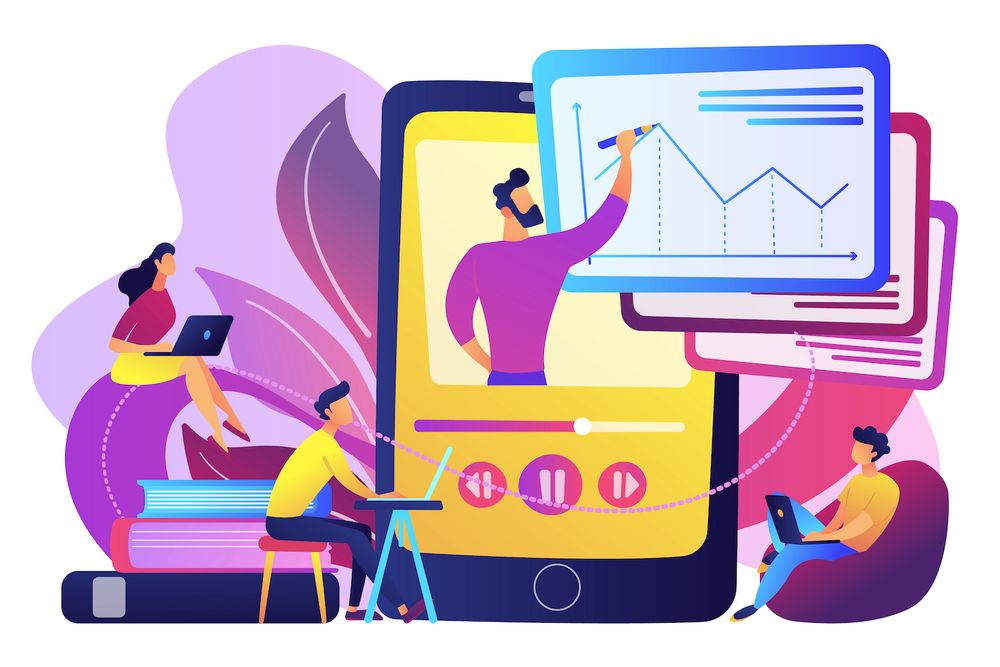Terms
"I come from a company with a model of business which is based on the growth of communities due to the fact that it's an open source," the founder says. So, he decided to establish a private Discord community that had access to all content hosted on WordPress, which is the place where his initial media project, virtualization.info was hosted, it would let him "recycle 20 years of experience".
He chose to go with WordPress and not due to his expertise and experience, but also because of the flexibility of the platform. "There exists a rationale why 43% of the websites on the planet utilize WordPress," he adds. The development of the plugin community means that what is possible through WordPress is impressive and is done in an incredibly short amount of time when compared to other options."
Do not compromise: the importance of branding
Alessandro continues: "Many newsletter and blogging platforms do not offer much choice in creating a brand. They combine the design and feel, and everybody has the exact same look and feel. The theme can be customized by a bit or include your own logo, however those are just minor tweaks.
"Every blog or newsletter appears similar. This isn't working for me. As I often advise on social media, do not give up on the method which is the best for you. Do not compromise on performing the very best job you could do to tick a box. Doing something you don't want to do is one of the main things that can cause you to be resentful over the years."
A screengrab of the original virtualization.info site
"I created a brand that users remember from 20 years ago, and they still write to me on. I must have the ultimate ability and the freedom to make each and every pixel of this website so that it is enforcing my own brand. I want to advance my brand and not other publishing brands."
Becoming valuable: niche and voice
"Two things are incredibly important when creating your own online publication" Alessandro continues. "The first one is to identify your market. That's simple to say, difficult to accomplish!" he laughs.
The author explains that there's nothing to gain from having an additional person covering the same subjects in the same way as others from the same angle. "You are able to cover the same issues, it can be about cooking, politics or crochet, squash, or whatever you like However, you need to be able to see things from a different angle. This is what defines your area of expertise how you look at things is different."
He elaborates that Synthetic Work is looking at AI from a non-technical perspective, and how it impacts the economy, jobs, industries and the society. "If you are looking at cooking for instance you could find yourself in the field where your view is on the science behind it. This is something very few people talk about or even how at the level of very fundamental chemical what makes something taste good.
The second step is to identify your personal voice. "Human beings learn by emulating our surroundings. We say, "Wow I really like how the person's writing style' we try to emulate that, which is great and is the best way to get as much knowledge as possible. But then you need to reach a stage where you create your own voice. It is terrifying!"
It's a bit daunting to imagine that people may not like the way you look at the world or write about it. However, that's the only way you can be different from the rest. "If you're using the same voice or the identical approach as everyone who else, you'll soon be forgotten."
He goes on to say: "People don't read for content. It may seem counterintuitive but they read because they believe in the person they read about. They are interested in you as a person which then translates into what you communicate." He advises readers to ensure that their character is evident in the tone they use when you talk about their niche.
Alessandro present on stage at OpenStack community gathering in Silicon Valley
Alessandro says that he's seen this phenomenon for 20 years and still sees the phenomenon on a regular basis. In one instance I read an instructional guide for those who want to pursue a PhD which was composed by one of the co-founders of OpenAI. The guide does not have anything to do with artificial intelligence, but it's something that he wrote some time ago. In this article, he advises going to events. He suggests that you look less at the agenda and concentrate on the speakers. You should look for those you have admired and know or who you've heard are good - regardless of the fact that what they're presenting does not match with your own research."
Alessandro says that this is the perfect illustration of his point: get people interested in who you are and the way you say things, and then your words can be a secondary matter. "Even when they may not be with your views, they'll desire to hear your thoughts however, because they've grown to admire you and believe that they are playing a vital role in their life."
More details on Synthetic Work
Learn more on Alessandro Perilli and his Synthetic Work newsletter at synthetic.work.
